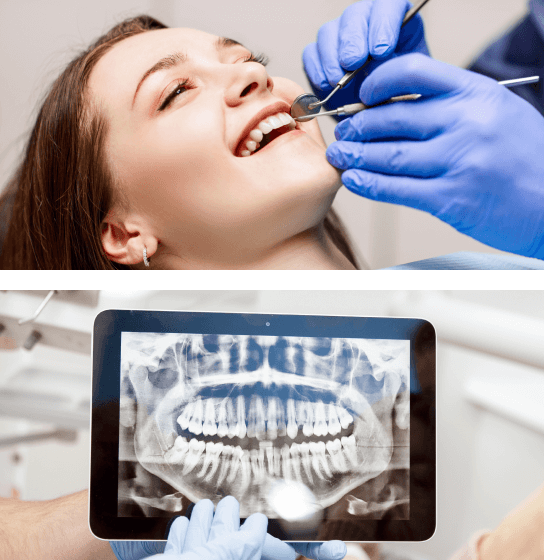A Comprehensive Guide to Cancer Dentistry and How It Can Help You
Cancer is a life-changing diagnosis, and it often carries with it many challenges. One of the most daunting aspects of dealing with cancer can be taking care of your mouth—from finding a dentist who knows how to safely treat cancer patients, to understanding exactly what kind of dental work you’ll need during your treatment journey. Fortunately, there’s an entire discipline dedicated to helping those undergoing treatments for cancer keep their oral health in check: Cancer Dentistry. In this comprehensive guide, we’ll discuss what Cancer Dentistry is and why it’s essential for maintaining optimal oral health while battling the disease. We’ll also tell you how this specialized branch of dentistry works, and how it can help improve overall quality of life when facing a tough battle against complex medical issues like cancer.
What is cancer dentistry and who needs it
Cancer dentistry is a specialized branch of dental medicine that focuses on treating patients who are undergoing cancer treatment. It is incredibly important for these individuals to maintain optimal oral health during their treatment, as the side effects of chemotherapy and radiation can have a severe impact on their teeth and gums. Cancer dentistry involves a multidisciplinary approach, with dentists, oncologists, and other healthcare professionals working together to ensure that patients receive the highest level of care possible. Specifically, cancer dentists help to manage oral complications that can arise from cancer therapies, such as mouth sores, dry mouth, and infections. They also provide preventative care, such as regular dental check-ups and cleanings, to minimize the risk of tooth decay and other oral health issues. Ultimately, cancer dentistry is an essential component of comprehensive cancer care, ensuring that patients can maintain their overall health and quality of life throughout their treatment journey.
The importance of proper dental care for cancer patients
Dental care should be a top priority for cancer patients, as it can have a significant impact on their overall health and quality of life. Cancer treatments such as chemotherapy and radiation therapy can weaken the immune system, making it more difficult for patients to fight off infections. This includes oral infections, which can lead to serious complications such as gum disease, cavities, and tooth loss.
Additionally, cancer treatments can also cause dry mouth, which can further increase the risk of tooth decay and gum disease. Dry mouth occurs when the salivary glands are damaged by cancer treatments, resulting in a reduced production of saliva. Since saliva helps to flush away food particles and prevent the buildup of harmful bacteria in the mouth, a lack of saliva can be detrimental to oral health.
Regular dental checkups and cleanings during cancer treatment can help prevent oral health problems and catch them early if they do occur. Cancer patients should inform their dentist and doctor about their cancer diagnosis and treatment plan, as they may need to take certain precautions during dental procedures to minimize the risk of infection or complications.
Overall, proper dental care is an essential component of cancer treatment and can help to improve the overall health and well-being of cancer patients. By working with their healthcare providers and dental professionals, cancer patients can maintain good oral health throughout their treatment and beyond.

Chemotherapy Can have a Severe Impact on Teeth and Gums
Common types of treatments used in cancer dentistry
Cancer dentistry, also known as oral oncology, is a specialized field of dentistry that addresses the unique needs of individuals living with cancer. One of the most significant challenges faced by patients undergoing cancer treatment is the impact it can have on their dental health. Common types of treatments used in cancer dentistry include preventive measures such as fluoride treatments, dental cleanings, and oral health monitoring. Furthermore, restorative treatments such as fillings, crowns, and dentures may also be necessary to repair decayed or damaged teeth. For patients undergoing radiation therapy, specialized treatment approaches such as hyperbaric oxygen therapy, photobiomodulation therapy, and saliva substitutes may be recommended to help minimize the negative effects of radiation on oral tissues. In addition, oral surgery treatments such as tooth extractions or biopsies may also become necessary during cancer treatment. The use of these various treatments in cancer dentistry serves to provide patients with comprehensive and tailored care, which can help improve their overall quality of life. By working closely with a dental professional experienced in the field of oral oncology, patients can receive the specialized care they need to preserve their oral health throughout their cancer treatment.
What to look for when selecting a cancer dentist
When it comes to selecting a cancer dentist, there are a few key factors that should be carefully considered. Firstly, the dentist’s experience in treating patients undergoing cancer treatment is paramount. They should be well-versed in dealing with the unique oral health challenges that cancer patients face, such as dry mouth, gum disease, and oral thrush. Additionally, a cancer dentist should be up-to-date with the latest research in oral oncology and be able to offer the most effective treatments available.
Another important factor to consider is the dentist’s communication skills and ability to empathize with their patients. Cancer treatment can be overwhelming, and having a dentist who is able to listen to and respond to their patients’ concerns can make a significant difference. Finally, it’s essential to choose a cancer dentist who works closely with a multidisciplinary team of oncologists, surgeons, and other healthcare professionals. This collaboration ensures that patients receive the most comprehensive and coordinated care possible and that their oral health concerns are properly addressed as part of their overall cancer treatment plan.
In summary, selecting a cancer dentist is not a decision to be taken lightly. Patients should look for a dentist with experience in treating patients undergoing cancer treatment, strong communication skills, and a commitment to working as part of a multidisciplinary team. By carefully considering these factors, patients can feel confident that they are receiving the best possible care for their oral health needs while undergoing cancer treatment.
Tips for dealing with anxiety and fear associated with visits to the dentist
According to research, up to 80% of adults experience some level of dental anxiety and fear, making visits to the dentist more challenging than necessary. However, taking proactive steps to manage these feelings can make a world of difference. Here are some tips to keep in mind when facing dental appointments:
First, communicate your fears with your dentist or the dental staff. They can help ease your anxiety by explaining the procedures step by step, answering any background questions you may have, and using calming language throughout the appointment. Additionally, many dental offices offer sedation options, such as oral sedatives or nitrous oxide, to help you relax.
It’s also crucial to practice mindfulness techniques such as deep breathing, visualization, or meditation leading up to and during your appointment. These techniques lower stress levels, increase overall relaxation and decrease feelings of anxiety.
Finally, distraction techniques such as listening to music or watching television during the procedure can be highly effective. Some dental offices now offer virtual reality goggles to transport you to another world while the dentist completes the work.
With these proactive steps, you can work through your dental fears and anxieties and focus on maintaining a healthy and happy smile.

Dental Checkup for Cancer Dentistry
Questions to ask your dentist before starting treatment
As individuals, it is our responsibility to take care of our oral health. Regular visits to the dentist not only ensure a sparkling smile but also help prevent major dental problems down the road. However, before starting any treatment, it’s important to ask your dentist a few important questions. Firstly, inquire about the type of treatment recommended and the associated risks. It’s important to understand how the treatment works and what steps are involved to ensure that you are comfortable with the procedure. Furthermore, ask about the expected results and the timeline required to achieve them. It’s important to have realistic expectations and understand the ultimate outcome. Additionally, don’t hesitate to discuss costs and payment options to avoid unexpected bills. By asking these questions, you can better understand your dental treatment and ensure that it aligns with your personal needs and goals. In essence, the more information you have, the better equipped you are to make informed decisions about your oral health.
Resources to find more information about cancer dentistry
Cancer dentistry is a specialized branch of dentistry that focuses on providing dental care to cancer patients. With the increasing number of cancer cases worldwide, it has become crucial to highlight the importance of cancer dentistry and the resources available to find more information about it. There are various resources to explore, including scientific journals, medical textbooks, and online databases, such as PubMed, Medline, and the National Cancer Institute’s website. These resources offer extensive information on cancer dentistry, including the latest research, treatment options, and best practices in managing oral complications associated with cancer treatment. Additionally, there are various cancer organizations such as the American Cancer Society and the Oral Cancer Foundation that provide resources and work to educate the public and healthcare professionals about cancer prevention and treatment. With this wealth of information, it is crucial for healthcare providers to stay updated on the latest advancements in cancer dentistry to provide the best possible care for cancer patients.
As we have discussed, cancer dentistry is an extremely important facet of the cancer care process. Although it may cause feelings of anxiety and fear, proper treatment is necessary in order to reduce the risk of further complications. Not only should you select a skilled cancer dentist who specializes in treating cancer patients, but research the various medical treatments at your disposal. Lastly, remember to ask your dentist questions if anything isn’t clear and utilize available resources to pursue more information on this topic. By doing so, you can ensure that you’re well-educated and confident in both your choice of a cancer dentist and any treatments taken. Before heading off be sure to take away these key insights: Cancer dentistry is essential for cancer patients; make sure you’re selecting a knowledgeable specialist; become familiar with treatments available; recognize tips for managing anxiety; ask questions and explore available resources; and take the time to prepare yourself for a successful appointment. Act now to become an advocate for your own oral health care!
https://www.google.com/maps?cid=16874987499964767764